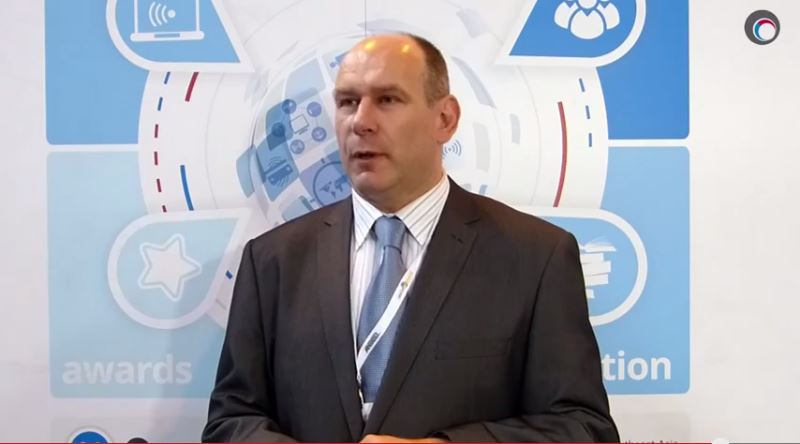

The strategic alliance and partnership manager for Warrington Certification (recently named among the most influential people in the fire industry) also discusses his work in definining competence criteria for fire-safety managers the challenges involved in sharing best practice across borders.
IG: Do you ever expect to see a Fire Safe Register, an equivalent to the Gas Safe Register?
SI: Yes, I do think we will see one in the next 18 months; I know there is a proposal being put forward to the Fire Sector Federation which has credibility and could allow the register be administered by an independent organization.
The idea is to make the register into a search engine for fire safety products and services; this register would only feature products or service providers that have accredited third party approvals. When I looked for a gas fitter recently using an internet search engine, the first person I found in my area had a gas-safe logo on his website, however when I did a cross reference check on the gas safe register (which not a lot of people do) he wasn’t listed on there.
The fire safe register will need to be ‘the’ place to go to specify or procure fire safety products and services; a sort of Amazon with quality assurance of those listed.
The compliance assurance that a register like this would offer, would raise standards of fire safety almost overnight, because if you’re a social housing provider, NHS trust or care provider you would need a really good excuse for not using the fire safe register as your procurement directory.
IG: Anything else in the pipeline?
SI: One of the major work areas of the Fire-Sector Federation has started looking at the competence of those who manage fire safety in UK properties. This is in response to several multi-fatality fires here in the UK, where fire safety management failures were a contributory factor.
Part of the work we are doing is to define the competence criteria for fire safety managers; the A, B, C of what they need to know and the X,Y,Z of what they need to do. These criteria will then be used to inform employers of the technical requirements their managers should have, it will be used by training providers as a syllabus and possibly by third party certification bodies for assessment.
Good fire safety management and methodology is the next big area the sector has to address; hopefully we can do enough to avoid the next big multi fatality fire.
We made a new guidance document available at FIREX this year. It is entitled ‘Fire safety and due diligence’, which will hopefully be of use to fire safety managers who attended the show.
IFSEC Global: There must be some examples where good fire safety knowledge has been shared across borders…
SI: There are lots and lots of harmonized European fire standards for products/systems, for testing and for operating third party certification. However there is very little in the way of sharing good fire safety practice in the same way as we share standards.
There must be some good case studies, research and guidance documents that are being produced in other countries, which don’t seem to be filtering down to the fire sector in the UK.
Even when it does flow this way we are slow on the uptake or we don’t even bother to apply it. For example in 2010 the European hotel and restaurant group HOTREC released a guide to good fire safety practice in hotels. This standard to our knowledge has been widely ignored by the UK hotel sector.
There is a now a scheme by which hotel operators can demonstrate they are complying with this European industry standard; not one UK hotel has signed up to this initiative. If you look at the presentations for Firex International this year, there was very little if anything from any other country apart from the UK.
In an attempt to address this at this year’s FRACS seminar in October, we hope to include some international case studies so delegates can learn from a different perspective.
IG: Why do you think there is little crossover between different countries?
There are still so many differences between countries that often a specific problem in one would have been addressed through building regulations or fire regulations in another, so it would never be a problem in that country. Cultural differences and enforcement differences also play a part too.
Take the Kiss nightclub disaster in Brazil for example; many people believe that something like that couldn’t happen here because of the UK licensing laws and because we have a structured fire service enforcement regime.
However, there was a night club in Bolton closed down by the Fire and Rescue Service during the early hours of the morning in late November 2013. The risk to life in the event of a fire being so great, that the clubs owners were served an immediate prohibition notice.
Presumably that club was dangerous the night before, the week before the month before; who knows how many young people had been exposed to that risk during a night out with friends.
I do feel that the UK to some extent is leading much of the world in fire safety and the flow of information from the UK out is very good, but there are many common problems here that we haven’t been able to address which are repeated all over the world. So it stands to reason there should be some common answers to fire safety issues too.
The sharing of good practice isn’t something that happens naturally, someone has to coordinate it and disseminate it. Hopefully through the Fire Sector Federation, the global issue of fire safety can start to be addressed and by developing a global sharing network for strategy, guidance and policy, many common failures which often lead to fire loss could be addressed more successfully.
Simon was also interviewed by FIREX TV at FIREX International 2014
2023 Fire Safety eBook – Grab your free copy!
Download the Fire Safety in 2023 eBook, keeping you up to date with the biggest news and prosecution stories from around the industry. Chapters include important updates such as the Fire Safety (England) Regulations 2022 and an overview of the new British Standard for the digital management of fire safety information.
Plus, we explore the growing risks of lithium-ion battery fires and hear from experts in disability evacuation and social housing.
